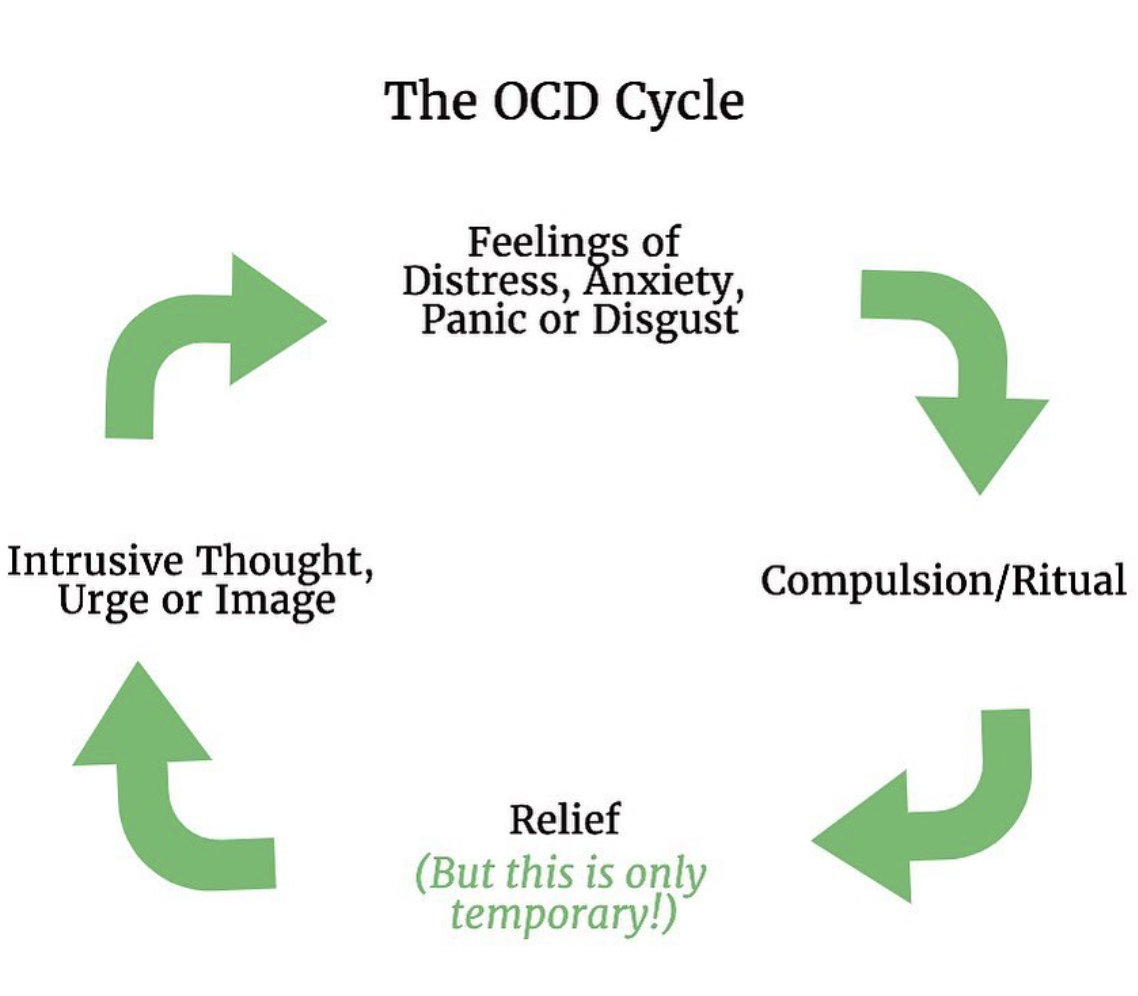What is Obsessive-Compulsive Disorder (OCD)?
OCD is a chronic mental health disorder. It consists of two distinct parts: obsessions and compulsions. Obsessions are repeated, persistent and unwanted thoughts, urges or images that are intrusive and cause fear, anxiety or disgust. Compulsions are repetitive actions, rituals or routines (either overt or mental) that the individual feels an urge to perform in order to get rid of obsessions or reduce distress.
Common OCD Subtypes or Themes Include:
- -Contamination OCD
- -Harm OCD
- -Sexual Orientation OCD
- -Relationship OCD
- -Perinatal or Postpartum OCD
- -Religious or Moral Scrupolosity OCD
- -Checking OCD
- -Pedophilia OCD
- -Symmetry OCD
- -"Just Right" OCD
- -Counting OCD
- -Existential OCD
- -False Memory OCD
- -Sensorimotor OCD
- -Real Events OCD
- -Magical Thinking or Superstitious OCD
People with OCD often suffer for many years before receiving help. You don't need to keep suffering. There is an effective, evidence-based treatment for OCD called Exposure and Response Prevention (ERP). ERP is a type of Cognitive Behavioural Therapy (CBT) specifically designed to treat OCD. No matter what OCD theme you're struggling with, our experienced ERP therapists can help.
BOOK A FREE CONSULTATION CALL
Signs That You Might Benefit from OCD treatment:
What is Exposure and Response Prevention (ERP) Therapy?
Exposure and Response Prevention (ERP) works by disrupting the OCD cycle. In ERP, we confront situations that provoke obsessions on purpose (that's exposure) while resisting the urge to perform compulsions (that's response prevention). We slowly expose ourselves to our fears and do nothing. We allow obsessions to be present, we resist the urge to perform compulsions, and we sit with the discomfort, doubt and uncertainty. If you don't do compulsions, the distress will not last forever. It is temporary and will go away all by itself.
Over time, eliminating compulsions will teach your brain that the anxiety from obsessions will dissipate without any intervention from you. You don't need to do anything. When your brain and body learns this important lesson, intrusive thoughts and obsessions won't feel so important anymore. They won't feel so urgent. They won't feel so meaningful. The intense urge to ritualize won't feel so strong.
If this scares you and sounds totally awful, you're not alone.That's almost everyone's initial reaction to ERP. After completing ERP treatment, you may wish you had done it sooner! It's effective, and taking your life back from OCD is powerful stuff. Treatment is challenging, but so is living with OCD! You deserve to take your life back.
ERP is the gold-standard treatment for OCD, and all of our Grounded Minds therapists are skilled in helping you overcome OCD with this therapy. Even if it feels impossible, recovery from OCD is absolutely possible.We see it every day.
What You Could Expect After Completing OCD treatment:

